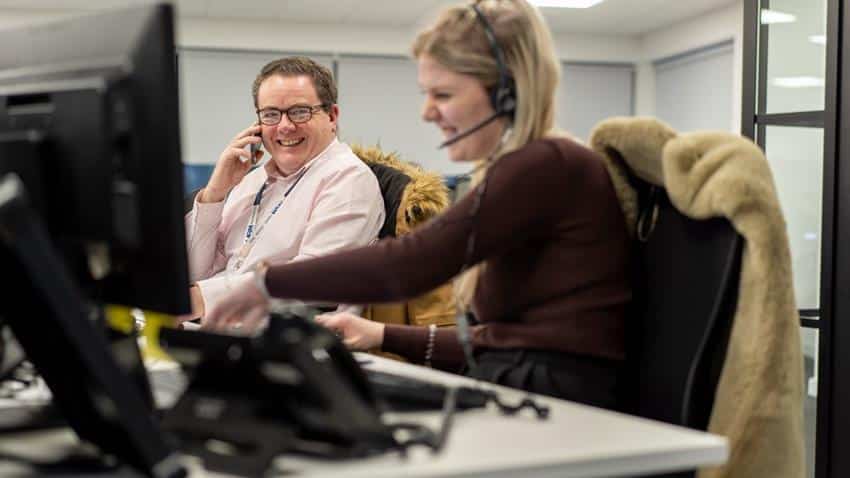Social interaction, is it for you? As humans we need to interact and socialise with others in our daily life whether we want to or not, and for some this provides energy but for others, it can have the opposite effect.
If you are an extrovert, you may thrive on the thought of Christmas parties and being sociable for days on end… however if you are an introvert that very same thought can fill you with dread.

What is ‘Social Burnout’?
We may not even know we are burnt out until we start feeling the physical and emotional responses, such as inability to focus, intense headaches or frequent migraines, difficulty sleeping, feeling fatigued and being very irritable or detached from others.
By being mindful of our feelings and recognising early signs of burnout or social exhaustion, we can prevent the symptoms.
Early Signs Can Include:
- Being unable to sleep
- Feeling overly reactive
- Having little to no energy
- Not performing at your best
- Not wanting to talk to people
How can I avoid it?
Know your limits
If you know you are going to an event or place where there will be lots of people that want to talk to you, allow limited time for each of them (without making this obvious!)… excuse yourself politely after 5 minutes to mingle with others. Keep the conversations light!
Set a time to leave
If you’re feeling particularly anxious about a social event coming up, give yourself a minimum time to stay there until. ‘I’m going to stay an hour and then I can leave’ feels a lot more forgiving than forcing yourself to stay all night in a place you don’t feel comfortable. If you end up enjoying yourself more than you thought you would, great! You can stay if you want to, but again you don’t need to.

Allow yourself to recover
It can be exhausting to socialise once in the week, let alone the amount of Christmas get togethers there are during the festive season! It’s normal to have a burning desire to stay in bed and watch TV all day after entertaining friends or colleagues at a Christmas event! Book events with time in between to recover and prepare for the next.
Don’t feel pressured to drink if you don’t want to
Socialising outside of work can be focused a lot on alcohol and this can be tricky, especially if you feel nervous and it makes you feel less awkward in the situation. If you don’t want to drink, you don’t need to make excuses, a friend will accept that you don’t want to without prying for a reason why. Nobody needs the worry of ‘hangxiety’ the day after an event.

Okay I’ve done too much and now I’m feeling exhausted, what can I do to recover?
Prioritise self-care
Do what your body needs and is asking of you. This could be resting on the sofa binging a series on Netflix (we highly recommend Gilmore Girls for a fix of wintery feel-good vibes), baking your favourite recipe, or even just having a dance in the kitchen to super loud music. Whatever your go-to, this could do wonders to reduce your stress levels.

Practice journaling
Write down how you are feeling, draw or doodle if you’re not feeling up to writing. Expressing your emotions through the medium of journaling has been shown to reduce symptoms of anxiety and low mood when performed daily. Also, it can be very cathartic to release the negative feelings.
Try meditation or breathwork
Some people find meditation to have beneficial effects such as reduced anxiety symptoms, releasing of tension, stress relief and improvement in mood. Not everybody finds meditation as easy as others, especially those of a neurodivergent mind- if you find the stillness of meditation difficult, check here for tips on how to be mindful with a fidgety brain.

Exercise!!
We know you’ve been told over and over to exercise “it’s good for you!”, “It will make you feel better” and “it releases endorphins” … But it’s true! The benefits of moving your body certainly outweigh the negatives (are there any?!) and it doesn’t need to be an hour long gym session. It can be a 20 minute boogie in your bedroom or a nice long walk around your local area, you will still be reaping the benefits for days to come!

Reach out to someone
Whether it be a friend, family member or valued colleague, you matter to someone. A problem shared is a problem halved. Opening up about how you are feeling can be a therapeutic way to let your thoughts out in a safe place.
If you are experiencing social burnout to a severe degree, consider reaching out to a healthcare professional for further support.
Find a flexible therapist here: BetterHelp – Get Started & Sign-Up Today
Contact Mind’s helpline here: Mind helplines – Mind





